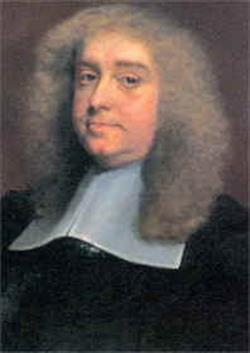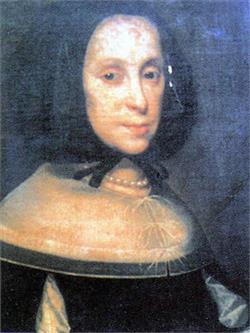Sir Thomas FOLEY 1617 - 1677
Sixth child, fourth son of Richard FOLEY and Alice BRINDLEY (Brother of Robert FOLEY 1624 - 1676, our direct forebear.)
Born 3rd December 1617, Stourbridge, Worcestershire
Died 1st October 1677, Witley Court, Worcestershire
Married c. 1639, Anne Browne 1619 - 1667
Anne Browne 1619 - 1667
Thomas FOLEY and Anne BROWNE had twelve children.
Witley
Thomas Foley bought the Witley estate in 1655, Witley Court was a substantial Jacobean mansion, which had developed from a medieval manor house.
The Foleys - whose business began with manufacturing nails - gradually abandoned the industrial base that had made them rich, concentrating instead on being landed aristocrats and politicians. The 1st Baron Foley (1673–1733) enlarged the house significantly, adding wings on either side.
Politics
The following is from The History of Parliament: the House of Commons 1660-1690, ed. B.D. Henning, 1983
Constituency Dates
WORCESTERSHIRE
1659
BEWDLEY
1660
BEWDLEY
7 Nov. 1673 - 10 Mar. 1677
Family and Education
b. 3 Dec. 1617, 3rd s. of Richard Foley (d.1657), iron-master, of Stourbridge, being 2nd but 1st surv. s. by 2nd w. Alice, da. of William Brindley of Willenhall, Staffs. m. bef. 1641, Anne, da. and h. of John Browne, gunfounder, of Spelmonden, Kent, 4s. (1 d.v.p.) 2da.1
Offices Held
Dep. gov. Society of Mineral and Battery Works 1647-75, treas. 1657-76; member, Society of Mines Royal 1653, treas. 1654-76, dep. gov. 1658-76; member, corp. for propagation of the gospel in New England 1661.2
Commr. for assessment, Staffs, 1649-52, Worcs, 1657, Aug. 1660-3, 1664-74; j.p. Staffs. 1650-3, Worcs. 1657-July 1660, 1662-d.; commr. for scandalous ministers, Worcs. 1654, militia Mar. 1660; freeman, Portsmouth 1665; commr. for recusants, Worcs. 1675.3
Biography
Foley’s father, who established the family fortune, moved to Stourbridge about 1630, where he set up slitting mills and obtained a virtual monopoly of nail-making in the West Midlands. He seems to have preserved neutrality during the Civil War, though his sympathies were royalist and he supplied ordnance to the King’s armies. Foley himself is not known to have taken part in the war, but he was a friend of the Presbyterian divine Baxter, and during the Interregnum he secured valuable naval ordnance contracts and was appointed to county office. ‘A religious, faithful man’, according to Baxter, ‘of unquestioned fidelity and honesty’, he bought Witley in 1655 and represented the county in Richard Cromwell’s Parliament, the first of the family to sit.4
Foley was defeated in the Worcestershire election in 1660, but he was returned for Bewdley, some five miles from Witley. An inactive Member of the Convention, he was appointed to 11 committees. In his only recorded speech he opposed the exception of the Independent preacher Nye from the benefits of the bill of indemnity. His committees included those to prepare the excise and custom bills, to settle ecclesiastical livings and to prevent profanity. He did not stand in 1661, but defeated Henry Herbert at a by-election in 1673. His position was vulnerable to charges of bribery, however, and there is no evidence that he ever sat in the Cavalier Parliament, though it was not until the 1677 session that his seat was awarded to his opponent on petition. He died on 1 Oct. and was buried at Witley.
Ref Volumes: 1660-1690
Authors: M. W. Helms / Edward Rowlands / Geoffrey Jaggar

